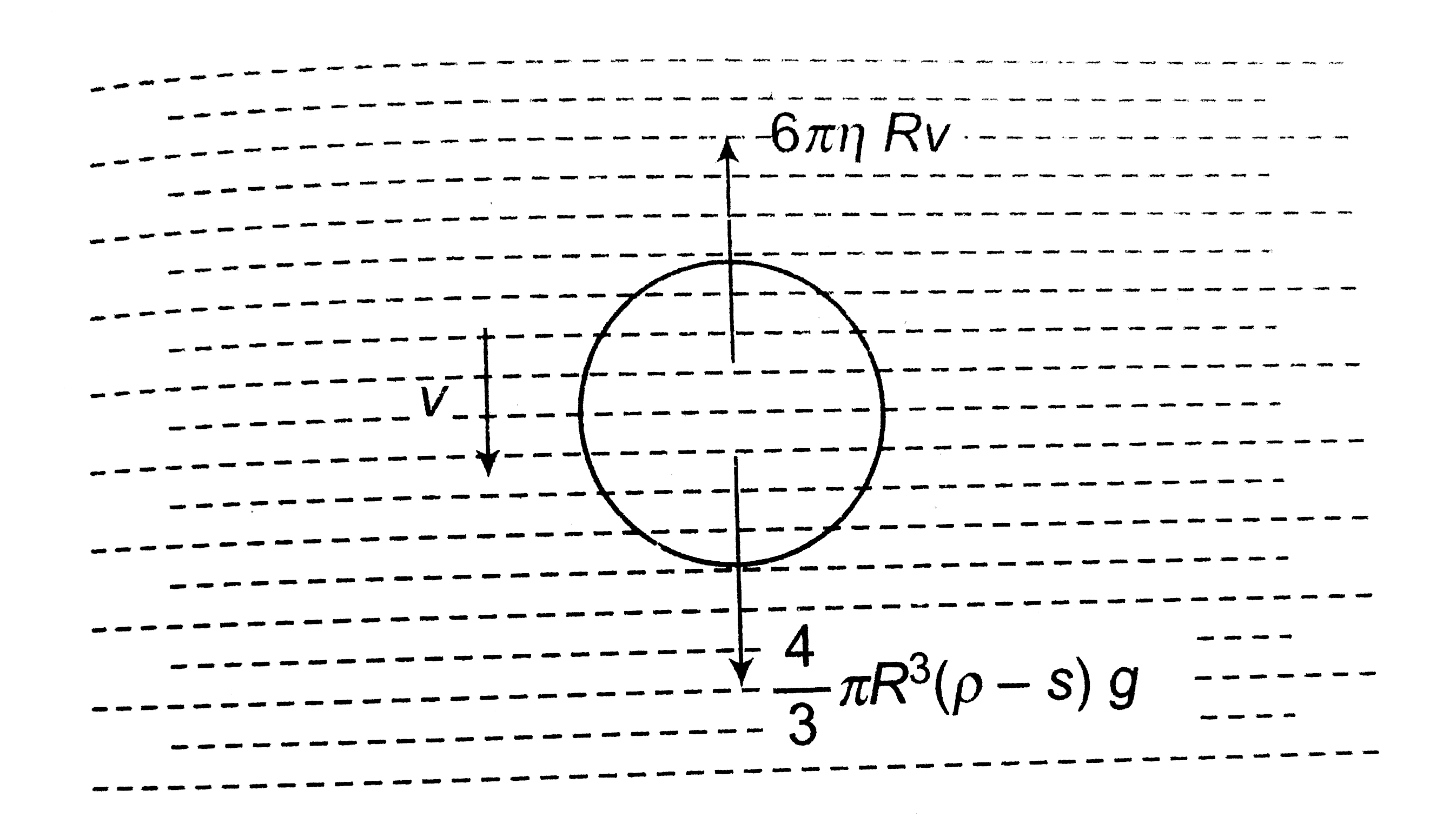A sphere of mass M and radius R is falling in a viscous fluid. The terminal velocity attained by the falling object will be alphaortional to :
R
R2
1R
1R2
The correct Answer is:B

When the sphere of radius R is falling in a liquid of density σ and coefficient of viscosity η it attains a terminal velocity v, under two forces
(i) Effective force acting downward
=V(ρ−σ)g=43πR3(ρ−σ)g
(ii) Viscous forces acting upwards =6πηRv Since the sphere is moving with a constant velocity v, There is no acceleration in it, the net force acting on it must be zero. That is
6πηRv=43πR3(ρ−σ)g
⇒v=29R2(ρ−σ)gη
⇒v∝R2
Thus terminal velocity is proportional to the square of its radius.
Topper's Solved these Questions
- BOOK - A2ZCHAPTER - PROPERTIES OF MATTEREXERCISE - Chapter Test29videos
PROPERTIES OF MATTER
- BOOK - A2ZCHAPTER - PROPERTIES OF MATTEREXERCISE - NEET Questions17videos
PROPERTIES OF MATTER
- BOOK - A2ZCHAPTER - OSCILLATION AND SIMPLE HARMONIC MOTIONEXERCISE - Chapter Test29videos
OSCILLATION AND SIMPLE HARMONIC MOTION
- BOOK - A2ZCHAPTER - ROTATIONAL DYNAMICSEXERCISE - Chapter Test29videos
ROTATIONAL DYNAMICS
Similar Questions
A lead sphere acquires a terminal velocity υ when falls in a vicous liquid. The terminal velocity attained by another lead sphere of radius three times in the same liquid will be _______
View SolutionA lead sphere acquires a terminal velocity v when falls in a viscous liquid. What will be the terminal velocity attained by another lead sphere of radius three times in the same liquid ?
View Solution
Knowledge Check
- Question 1 - Select One
When a sphere falling in a viscous fluid attains a terminal velocity, then
Athe net force acting on the sphere is zeroBthe drag force balances the buoyant forceCthe drag force balances the weight of the sphereDthe buoyant force balances the weight and drag force - Question 2 - Select One
A small lead ball is falling freely in a viscous liquid The velocity of the ball
Agoes on increasingBgoes on decreasingCremains constnatDfirst increases and then becomes constant - Question 3 - Select One
Rain drops fall with terminal velocity due to
AbuoyancyBviscosityClow weightDsurface tension
A spherical body of diameter D is falling in viscous medium. Its terminal velocity is proportional to
View SolutionA spherical metal ball of mass m and radius (r) is falling through a viscous medium. The value of its terminal velocity is proportional to
View SolutionThe terminal velocity of a sphere of radius R, falling in a viscous fluid, is proportional to
View SolutionSpherical balls of radius R are falling in a viscous fluid of velocity v .The retarding viscous force acting on the spherical ball is
View SolutionIf rho is density of falling body and sigma is the density of fluid then the terminal velocity of the falling body is proportional to
View Solution

